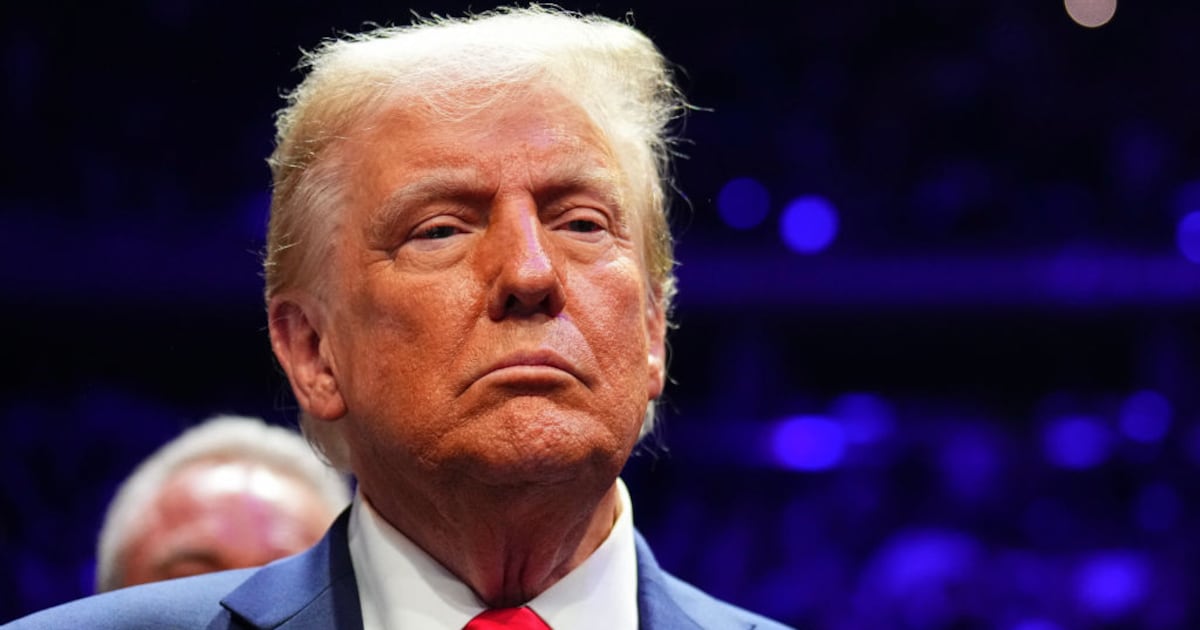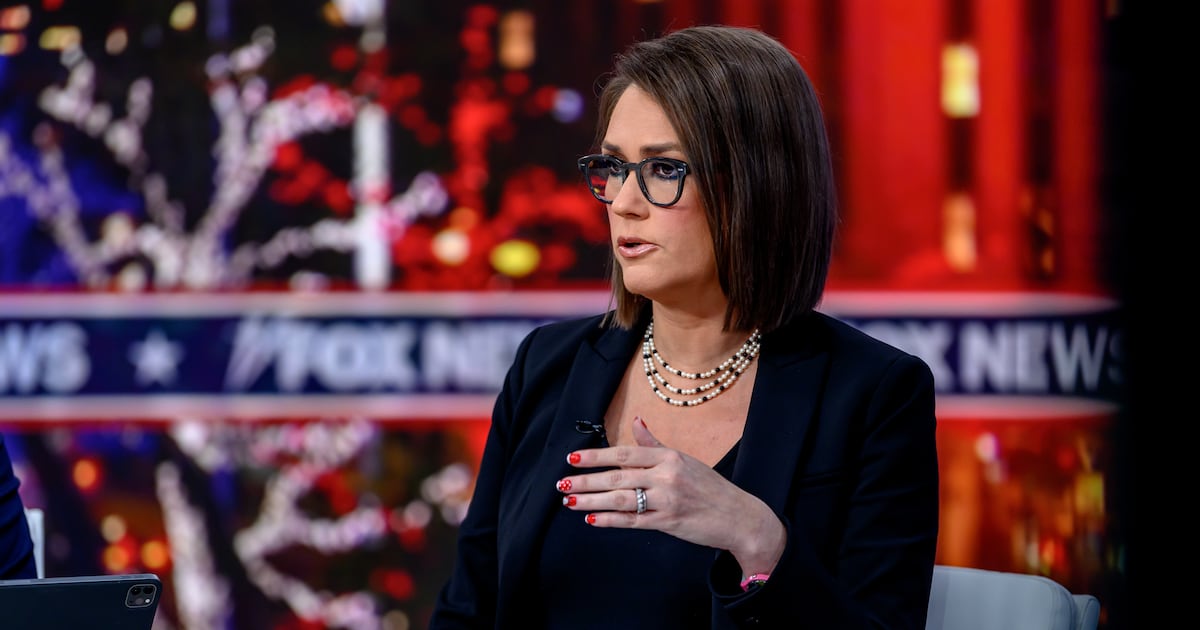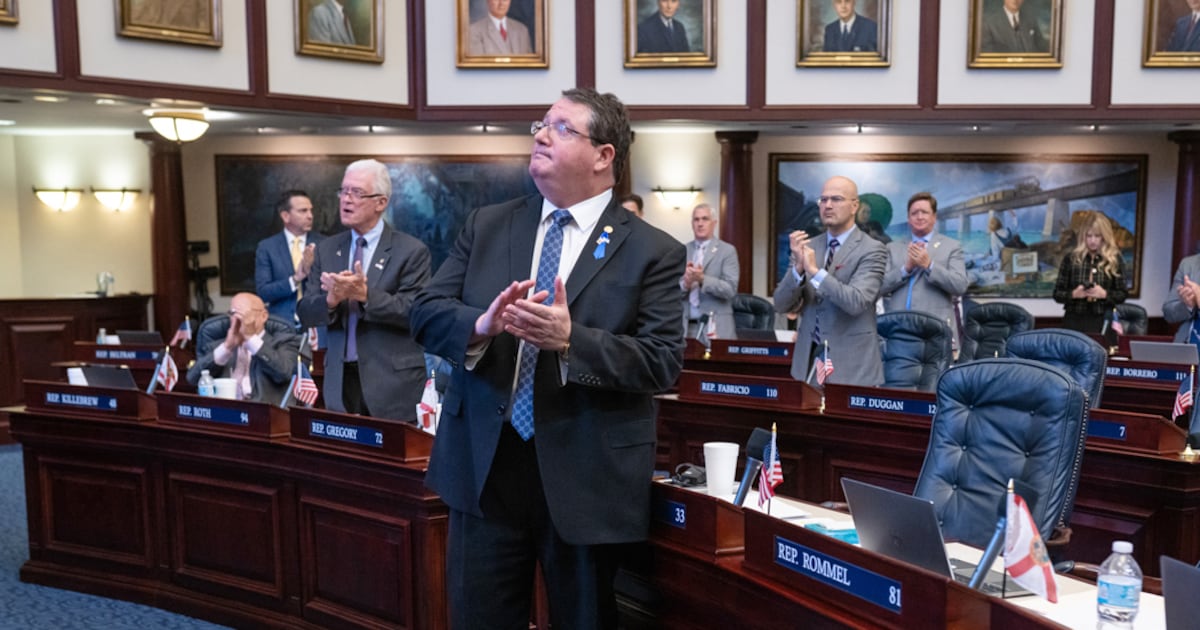The North Carolina Senate race hasn’t been as high on Democrats’ lists of possible pick-ups as Maine and Colorado. But that seems to be changing fast.
Incumbent Republican Thom Tillis has been taking some heat over the discrepancy between his coronavirus response and his response to an earlier outbreak when Barack Obama was president. Tillis is all in when it comes to Donald Trump. He says the president is “taking every step he can to help the safety of the people in the United States” despite complaints from governors around the country, including his home state governor, Democrat Roy Cooper, that they have not received the testing supplies they need. It’s China’s fault, Tillis says, that Trump wasn’t quicker off the mark.
This posture is in stark contrast to the one Tillis took in 2014, when Obama was president, and he fanned the flames of the Ebola outbreak, blaming Obama and incumbent Democrat Kay Hagan for not preparing enough before the outbreak, and not doing enough to combat it with a ban on flights from West Africa. “And every day they say everything is under control, and the next day you see another gaffe by the CDC and the administration,” Tillis said back then, in a line of attack that media reports credited with giving him momentum to overtake Hagan heading into the homestretch of the 2014 campaign.
ADVERTISEMENT
Tarheel voters are starting to notice Tillis’ lapdog loyalty to Trump. Morgan Jackson, a Democratic consultant based in Raleigh, North Carolina, says voters take cues from how elected officials and candidates handle themselves during a major crisis, and Tillis has some explaining to do.
“He’s starting to get questions about how different a response he had then, while now he triple-doubles down on whatever Trump says, like if you want a test you can get it, which isn’t true," Jackson say. "The cues that voters are taking from this is that he’s not showing leadership. He’s on board with the president no matter what, which is a dangerous place for a politician to be in a crisis when he’s perceived as making decisions based on partisan politics rather than public health and safety.”
While still praising Trump for his “decisive leadership,” Tillis did join with two other North Carolina lawmakers, Democrat David Price and Republican Roy Hudson, sending a letter to Vice President Mike Pence imploring the administration send more test kit supplies to their state.
The race took another significant turn on March 3 when Democrats nominated a candidate with broad appeal whom Tillis can’t easily label a socialist. Cal Cunningham, 46, is a moderate businessman, former state senator, and veteran who won his primary against state Senator Erica Smith by 57 to 35 percent.
One factor that really helped Cunningham: It was revealed in late February that Smith, who is African-American, was backed by the Faith and Power PAC, which was created and funded by GOP leader Mitch McConnell’s House Majority PAC.
Meddling in a Democratic primary to help the weaker candidate shows how worried McConnell is about protecting his Senate majority. The phony PAC backfired, tarring Tillis and boosting Cunningham’s name recognition in a race that could help tip power in the U.S. Senate.
But it’s Tillis’ comments about Obama and Ebola that “could come back to bite him” in the general election, says Stu Rothenberg, senior editor and analyst with the nonpartisan Inside Elections. Tillis won by only 1.5 points in 2014, which was a banner year for Republicans. “Tillis has embraced Trump as much as anybody, and that’s OK as long as Trump is popular and headed to reelection—but not if Trump is seen as out of touch and not up to the job,” Rothenberg told the Daily Beast.
Rothenberg says that when he first met Tillis, he thought he was a conventional conservative businessman, “but after watching him I came to the conclusion he sees the world like an uber-partisan ideologue, someone who doesn’t say ‘We have a problem, let’s solve it’ but ‘How does that problem fit into my world view?’ And that leads to having a tin ear. People just want the problem solved, they don’t want to make an ideological point.”
An internal memo written by Tillis’ campaign manager the day after the North Carolina primary was made available to Rothenberg and others with its cheery assessment that the campaign has an “army of supporters who are ready to win in November,” and that Cunningham is a “far-left liberal who supports radical presidential candidates outside the political mainstream in North Carolina.”
Rothenberg was not impressed. “The memo was all about how Democrats are socialists and extremists,” he says. “That’s a much harder sell if it’s Biden. He’s been fighting Bernie! That doesn’t mean Tillis can’t win, but the idea that he’s in a strong position for re-election—he’s not.”
Tillis has some other baggage. Soon after taking office in 2015, as the Ebola outbreak was ending, Tillis volunteered a story to underscore his opposition to government regulation. He told the Bipartisan Policy Center that his support for the free market being able to act without government interference extended to his belief that Starbucks should be allowed to opt out from requiring employees to wash their hands after using the restroom.
His rationale: As long as Starbucks posted a sign saying employees are not required to wash their hands, “the market will take care of that.” Raising his right hand to emphasize the truth of his statement, he said businesses that posted signs telling customers their food workers didn’t have to wash their hands would go out of business.
To Tillis, that is the free market at work. To most others, it looks like one regulation substituting for another.
Needless to say, Tillis was widely mocked, his tortured logic even making The Daily Show with Jon Stewart. Everybody had a good laugh then, but handwashing is serious business in today’s coronavirus pandemic, and government intervention is critical to prevent the spread of the virus from overwhelming our collective ability to handle the outbreak and to treat the most seriously ill.
Cunningham was a candidate for lieutenant governor in North Carolina before switching to the Senate race in June of last year. His moderate views and his military credentials fit the profile of a Democrat who can win in the South. He voted for Pete Buttigieg, a fellow veteran, in the North Carolina primary, but quickly aligned himself with the likely nominee, Joe Biden, opposing Medicare for All, and keeping the focus on Trump.
North Carolina is a critical swing state in November. Obama won it narrowly in 2008, but lost it in 2012. Whichever party carries the state is likely to gain the White House and majority control of the senate. Democrats need to pick up at least four Republican-held Senate seats to gain control of the Senate, and now that Tillis’ seat looks iffy for the GOP, Democrats have a realistic path to power that would be a whole new day in Washington.






